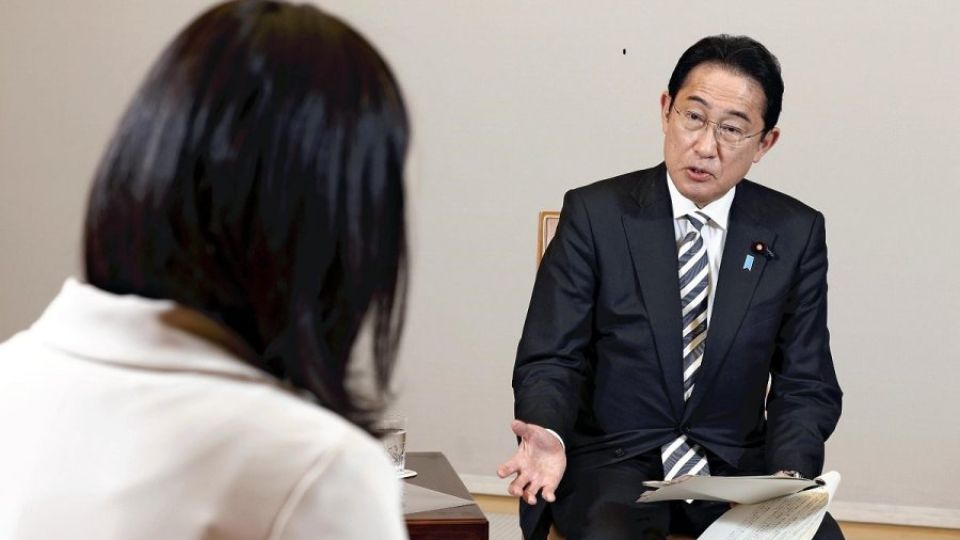March 31, 2023
TOKYO – Prime Minister Fumio Kishida wants to have childbirth expenses covered by public health insurance in the future, as part of efforts to create an environment that is more conducive to having children.
The government will establish a system that allows people to use day care facilities on an hourly basis, regardless of their work situation, and introduce preferential interest rates on housing loans to support households with multiple children, Kishida said during an interview with The Yomiuri Shimbun on Wednesday.
Asked why the birth rate remains low, Kishida said: “Young people are not fully optimistic about their future. The reality is that births and marriages have to be pushed to later in life.”
“To overcome this situation, it is important to increase the income of the younger generation,” he said.
Normal childbirth is not currently covered by insurance because it does not constitute an illness or injury. However, a lump-sum childbirth allowance of ¥420,000 is provided.
The allowance will be raised to ¥500,000 starting in April, but there are concerns that medical institutions will increase their prices. Differences in the cost of childbirth, depending on the region and medical institution, are also seen as a problem.
“We want to promote the ‘visualization’ of childbirth costs. And after reviewing the services [of medical institutions] and the costs, we want to consider having it covered by insurance,” Kishida said.
Regarding efforts to reduce the gap in support based on people’s work situations, the prime minister said: “Until now, the emphasis has been on providing childcare services for dual-earner households and eliminating the number of children on waiting lists. From now on, it’s important to provide the necessary support to all families raising children.”
In addition to providing childcare leave for those who work shorter hours, Kishida also expressed his intention to consider new financial support for childcare leave for nonregular workers and the self-employed.
Kishida also said government guidelines needed to be improved to bolster the quality of child care. “The number of 1-year-olds per child care worker will be reduced from six to five,” he said.
He referred as well to reducing the burden of education costs, which is one reason people are reluctant to have children.
The prime minister said he plans to work toward the introduction of a system that would exempt students from paying tuition while they are in school and have them make payments based on their income after graduation.
With regard to scholarships that do not require repayment, Kishida said eligibility will be expanded to the middle class with annual household incomes between ¥3.8 million and ¥6 million for multichild households and students majoring in science, engineering and agriculture from the 2024 school year.
The government will release a preliminary draft of its children’s policies on Friday. A council of relevant Cabinet ministers and experts will be established later to work out the details.
By the time the Cabinet approves the Basic Policy on Economic and Fiscal Management and Reform in June, the government plans to lay out a general framework for securing financial resources to “double the child-related budget,” which is the prime minister’s goal.

